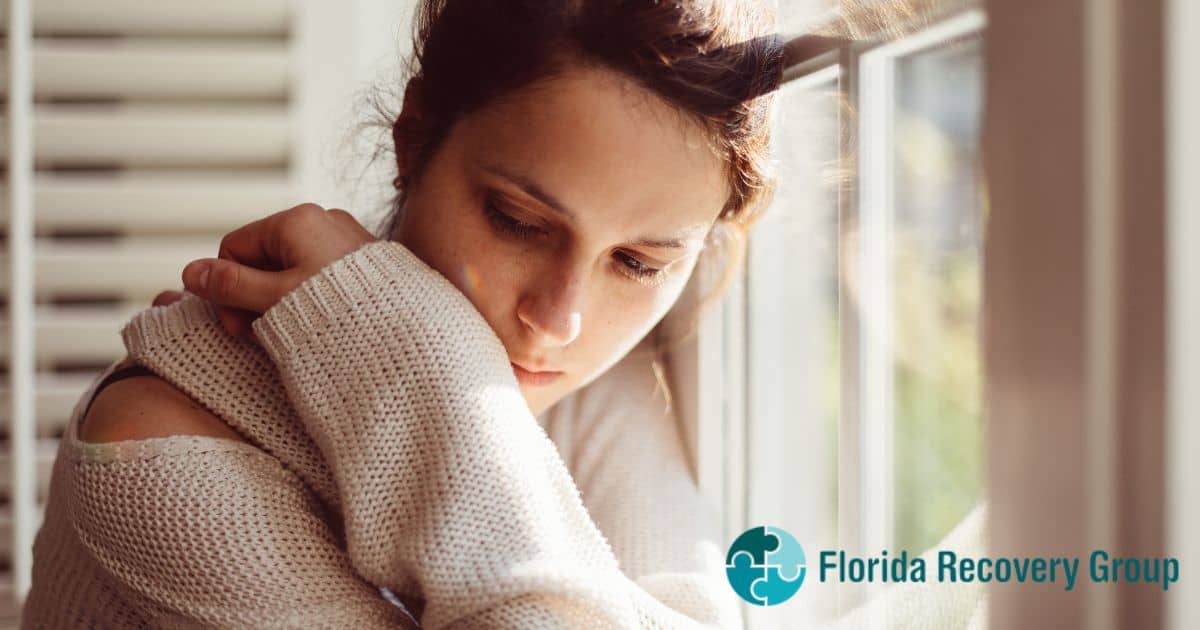
27 Jul Is it Common to Have Anxiety and Depression at the Same Time?
While depression and anxiety are two very different mental health conditions, they commonly occur together. Feeling down or being sad is normal and so is having occasional anxiety or stress. However, severe or ongoing feelings of depression and anxiety are signs of an underlying mental health condition.
If you notice that you feel down or hopeless more often than not, you may be suffering from depression. Additionally, feeling anxious and stressed most of the time may indicate that you have a co-occurring anxiety disorder. While these conditions are different, they are common co-occurring conditions.
According to the National Alliance on Mental Illness, “Some estimates show that 60% of those with anxiety will also have symptoms of depression, and the numbers are similar for those with depression also experiencing anxiety.”[1]
What is Anxiety?
There are many different types of anxiety disorders, but all of them share common symptoms of excessive and persistent worry or fear about seemingly normal situations. When you suffer from an anxiety condition, the feelings of anxiety and panic can begin to affect your everyday life. The symptoms of your condition may cause you to avoid people, places, or things that cause you stress, leading to social isolation and an inability to complete daily tasks.
In general, the symptoms of an anxiety condition may include:
- Feeling tense, nervous, or restless
- Feeling a sense of impending danger, doom, or terror
- Increased heart rate
- Breathing rapidly
- Sweating
- Trembling and shaking
- Feeling weak or tired
- Having a hard time concentrating on anything other than the current worry
- Having a hard time sleeping
- Experiencing gastrointestinal problems
- Avoiding things that trigger anxiety
According to the National Alliance on Mental Illness, “Anxiety disorders are the most common mental health concern in the United States. Over 40 million adults in the U.S. (19.1%) have an anxiety disorder.”[2]
What is Depression?
Depression is a common and serious mental health condition that negatively affects the way you feel, think, and act. This condition is known to cause persistent feelings of sadness and a loss of interest in things you once enjoyed. Suffering from untreated depression can lead to an array of symptoms that causes you to experience difficulty when completing daily tasks.
According to the National Institute on Mental Health, “An estimated 21.0 million adults in the United States had at least one major depressive episode. This number represented 8.4% of all U.S. adults.”[3]
While depression is common, it is still extremely dangerous when left untreated. Depression can cause you to experience symptoms such as self-harm, suicidal ideation, and suicide attempts.
Other symptoms of depression include:
- Having a depressed mood and feeling sad
- Loss of interest in previously enjoyed activities
- Changes in appetite
- Trouble sleeping or sleeping too much
- Loss of energy
- Slowed movements or speech
- Feelings of fatigue
- Feeling guilty or worthless
- Having a hard time thinking and making decisions
- Thoughts of death and suicide
The Relationship Between Anxiety and Depression
While the exact cause of co-occurring anxiety and depression is unknown, there are several factors that could contribute to the development of these conditions.
First, if you suffer from anxiety, the constant feelings of panic or stress could cause you to become depressed. This occurs as you become more and more tired of the emotions and feelings you are coping with.
The same goes for depression. Struggling with constant feelings of guilt or worthlessness could cause you to develop an anxiety disorder. You could become anxious during happy situations, as you begin to expect your depressive symptoms to return and ruin your time.
You could also be genetically predisposed to both anxiety and depressive disorders. If you have a genetic predisposition, this means you are more likely to develop the condition due to it being in your family.
How are Co-Occurring Anxiety and Depression Treated?
When depression and anxiety co-occur, it is important for you to receive treatment for both conditions at the same time. Without treating these conditions simultaneously, the symptoms of one condition could cause a relapse in symptoms of the other.
Additionally, leaving anxiety and depression untreated for a long time could lead to:
- Damaged relationships
- Difficulties at school or work
- Financial issues
- Poor performance in everyday life
- Isolation and loneliness
- Suicide attempts
Both conditions are treated with behavioral therapy, which will include individual and group counseling sessions. Some people have therapy-resistance symptoms that must be managed with medication.
Therapies used to treat anxiety and depression include:
- Cognitive behavioral therapy (CBT)
- Interpersonal therapy
- Mindfulness-based cognitive therapy
- Dialectical behavior therapy (DBT)
- Eye movement desensitization and reprocessing (EMDR)
Finding Help for Co-Occurring Mental Health Conditions
If you or a loved one suffer from both anxiety and depression or any other co-occurring mental health conditions, it’s time to seek help. Comorbid disorders can really wreak havoc on your life, causing you to become unable to complete daily tasks and responsibilities.
The mental health treatment program at Florida Recovery Group can provide you with the tools you need to start feeling like yourself again. Our team of mental health therapists and medical professionals will evaluate, diagnose and treat the root cause with compassion and empathy.
Contact Florida Recovery Group today for more information on how to get started.
References:





